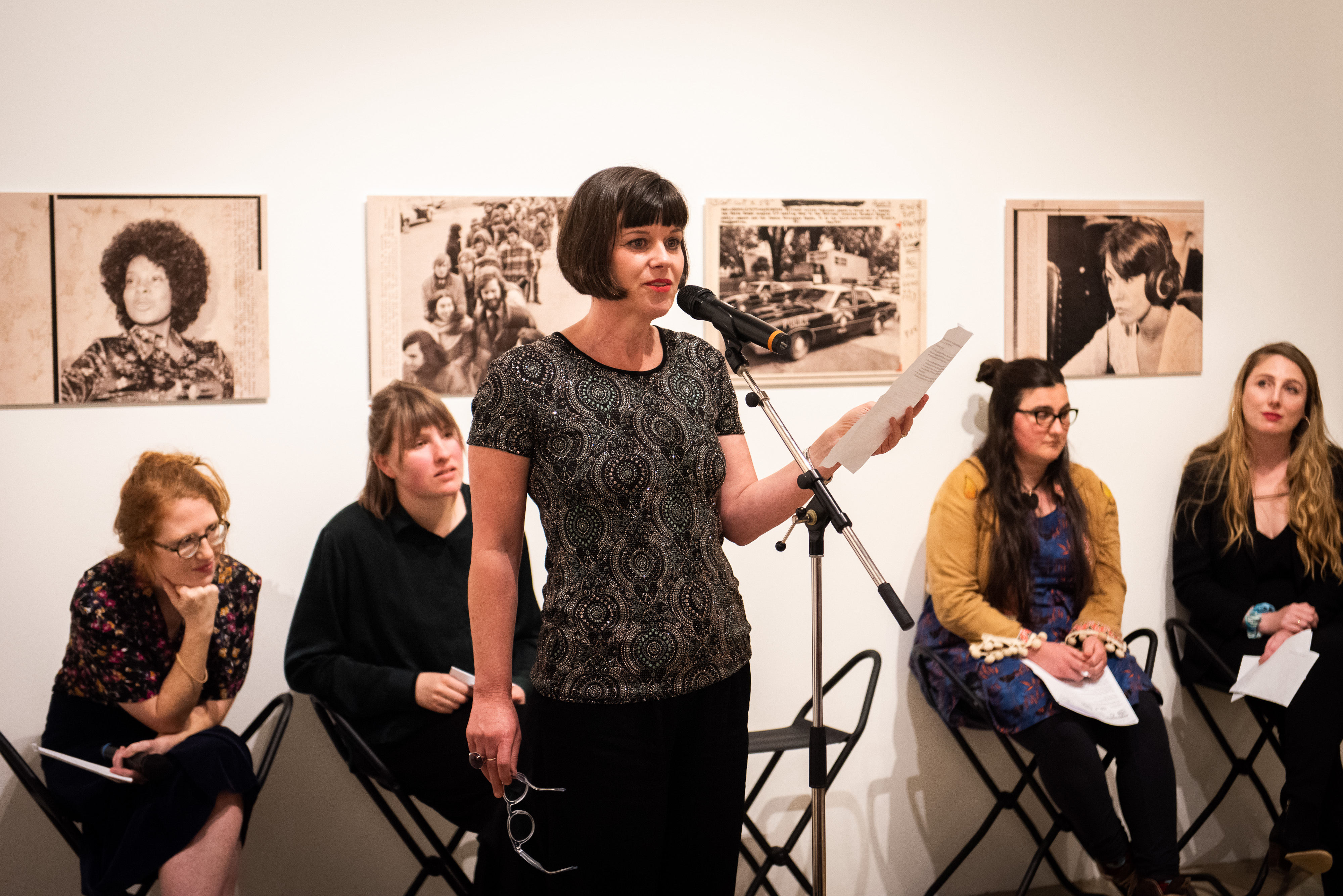Event/s

Bookclub: Eavesdropping Wellington
Thu, 07. Nov 2019
Pip Adam and the City Gallery Book Club return with a reading list inspired by Eavesdropping. Panellists: Brannavan Gnanalingam (novelist and lawyer), Sue Orr (fiction writer and former journalist), and David Long (musician, composer and producer). They will be discussing:
Catherine Chidgey, The Beat of the Pendulum: A Found Novel
Italo Calvino, A King Listens (from the collection Under the Jaguar Sun)
Eavesdropping: A Reader, edited by James Parker and Joel Stern
Behrouz Boochani, No Friend But the Mountains: Writing from Manus Prison.
Written responses from the following:
Catherine Robertson
Catherine Robertson’s six novels have all been number 1 New Zealand bestsellers. She has an MA in Creative Writing from Victoria University’s International Institute of Modern Letters. Catherine reviews for the NZ Listener, and is a regular guest on RNZ’s The Panel, and Jesse Mulligan’s Book Critic slot. She is on the board of Verb Wellington and on the Book Awards Trust. Catherine’s latest novel is What You Wish For (2019, Penguin Random House).
Ruby Solley
Ruby Solly is a Kai Tahu writer, musician and music therapist. She has been published in journals such as Landfall, Oscen, Minarets, and Starling amongst others. She has recently written her first short film, ‘Super Special’ which has been released by Someday Stories. Ruby will be reading and performing at Litcrawl as part of ‘The Savage Eye’ and ‘Purākau’.
Nikki-Lee Birdsey
Nikki-Lee Birdsey was born in Piha. She holds an MFA from the University of Iowa Writers’ Workshop and a BA from New York University. She has over 30 publications of poetry and prose in the US, UK, Canada and New Zealand, and she is currently a PhD candidate at the International Institute of Modern Letters. Her first book Night As Day was published by VUP in 2019 and was nominated for a Pushcart Prize in the U.S.
Annaleese Jochems
Annaleese Jochems grew up in Northland, and works at Book Hound in Newtown. She won the Hubert Church Best First Book award for her novel Baby.